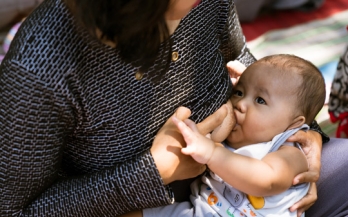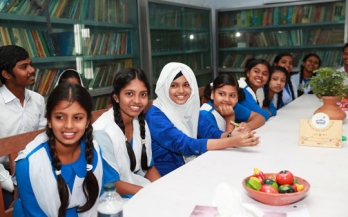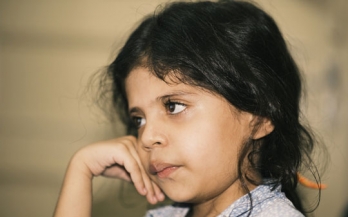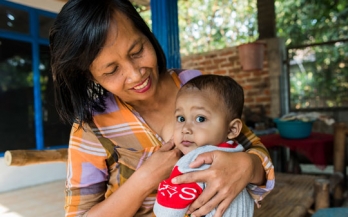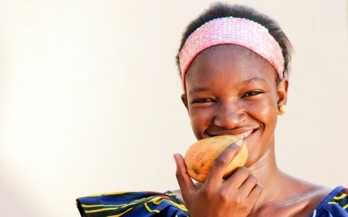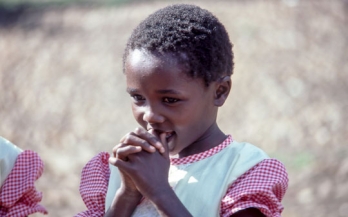- 08/10/2020
Eggs are a widely available and affordable source of protein, vitamins, and minerals that support growth and development, yet they are not frequently fed to children in Kaduna. The ‘Eggs Make Kids’ campaign was launched by GAIN on World Egg Day in October 2019. Using commercial marketing techniques and insights into consumer behaviour, it aims to create demand for eggs as a nutritious food for children aged six months to five years.
- 05/08/2020
Experts estimate that in low- and middle-income countries, optimal breastfeeding has the potential to prevent more than 800,000 deaths in children under age 5 and 20,000 deaths in women every year. Despite this, breastfeeding remains underexploited globally. While the progress seen is positive, there is still a long way to go to achieve global nutrition targets.
- 13/06/2018
Malnutrition during adolescence can have lifelong consequences. Adolescents undergo rapid biological and socioemotional changes and set lifelong dietary and related habits. Gender norms can leave girls disproportionately impacted by food insecurity, but many adolescent boys are malnourished as well. Adolescent girls are at risk of dropping out of school, marrying, and becoming pregnant - all of which can harm their nutrition and health as well as that of their offspring.
- 02/01/2019
The period 10-19 years of age is one of accelerated growth both physically and psychosocially. Boys and girls during this rapid growth phase have increased nutritional requirements of both macronutrients (carbohydrate, protein, and fat) and micronutrients. This is due to rapid physical growth and the onset of menses in girls and accelerated muscle and bone mass development in boys.
- 17/10/2018
While the first 1,000 days remains a critical period of nutritional need, adolescence the period from 10-19 years of age is characterised by rapid biological and psychosocial growth and development. Up to 45% of skeletal growth takes place and 15 to 25% of adult height is achieved during adolescence.
- 09/10/2019
GAIN works on supply and demand, as well as on changing incentives, rules and regulations to encourage production and consumption of nutritious and safe foods. We seek to understand and tackle barriers faced by small enterprises working to boost availability, affordability, desirability, and convenience of nutritious foods like eggs, especially for people on low-incomes.
- 09/10/2019
This factsheet describes the nutritional benefits of eggs for key target populations. Eggs are among the best food sources to improve diet quality in infants, as they contain nutrients which help brain development and physical growth.
- 18/07/2019
This paper describes an innovative behaviour change communication project, implemented as part of the Baduta project, including rationale and early impacts. Baduta was a multi-component project developed by the Global Alliance for Improved Nutrition (GAIN), together with partners, to improve maternal and infant nutrition.
- 12/08/2019
The Global Alliance for Improved Nutrition (GAIN) and the World Health Organization (WHO) organised a consultation in Geneva in June 2018, which brought together more than 80 researchers, practitioners, policymakers and youth organisations, as well as adolescents from Pakistan, Bangladesh, Indonesia and Zambia. This paper reports on the discussions and outcomes of the workshop.
- 05/10/2018
Food systems are essential to delivering healthy, affordable and sustainable diets, but the nutritional needs of children and adolescents are often not prioritised. UNICEF and GAIN co-hosted a global consultation on children, adolescents and food systems in November 2018.

